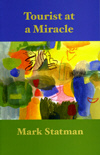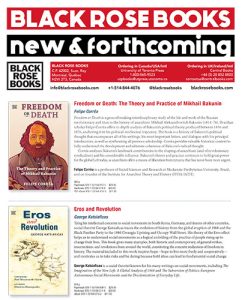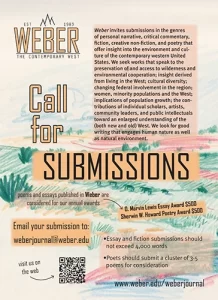Tourist at a Miracle
Mark Statman’s first collection of poetry, Tourist at a Miracle, is an enjoyable read filled with Frank O’Hara-ish observations of the everyday, or perhaps more like Bukowski sans booze and racetracks with a little James Schuyler thrown in. Statman’s book is filled with poems that are not to be feared, but instead quench a thirst for big ideas stated simply, that anyone can understand and ultimately use.
Mark Statman’s first collection of poetry, Tourist at a Miracle, is an enjoyable read filled with Frank O’Hara-ish observations of the everyday, or perhaps more like Bukowski sans booze and racetracks with a little James Schuyler thrown in. Statman’s book is filled with poems that are not to be feared, but instead quench a thirst for big ideas stated simply, that anyone can understand and ultimately use.
Statman uses a pared down language that somehow accentuates the enormity of his subjects, from family to New York City itself. In “A Thousand Words” he writes:
someone asked will you bring me
a meteorite stone from Las Vegas?
I said,
but I’m not going to Las Vegas
but if you do
you can find them everywhere
Like the meteorite stones, seemingly easy lines are found throughout, but when viewed closer they share a sense of being deeper than first thought. With the above lines, for instance, are the last two lines spoken by the “someone” or the poem’s speaker? Depending on the view it changes up not just the meaning, but has repercussions that bounce around for the rest of the poem. Later we find:
I arrived in Las Vegas
(…)
the meteorite rocks
crumbled in my hands
each time I picked one up
it fell away
Statman uses enjambment and stanza breaks (or the lack thereof) to great effect, letting ideas run into each other, creating a small disharmony in an otherwise easy flowing style. In “The Bad Screenwriter” we find “it wasn’t who you’d been / ever wanted to be” crashing into each other like trains on the same track.
Statman’s speaker is extraordinarily human and relatable, not to mention likeable, giving these poems more weight they might otherwise appear to have. It is the mundane day-to-day things that make us who we are, and ultimately end up being the most important. Referring to the song “Those Were the Days” in “Music Central,” Statman writes:
It’s a song from when
I was young
When really there weren’t any days
To remember or regret
The way there are now
We all have a natural tendency to regret, but Tourist at a Miracle leaves us with plenty to remember.





